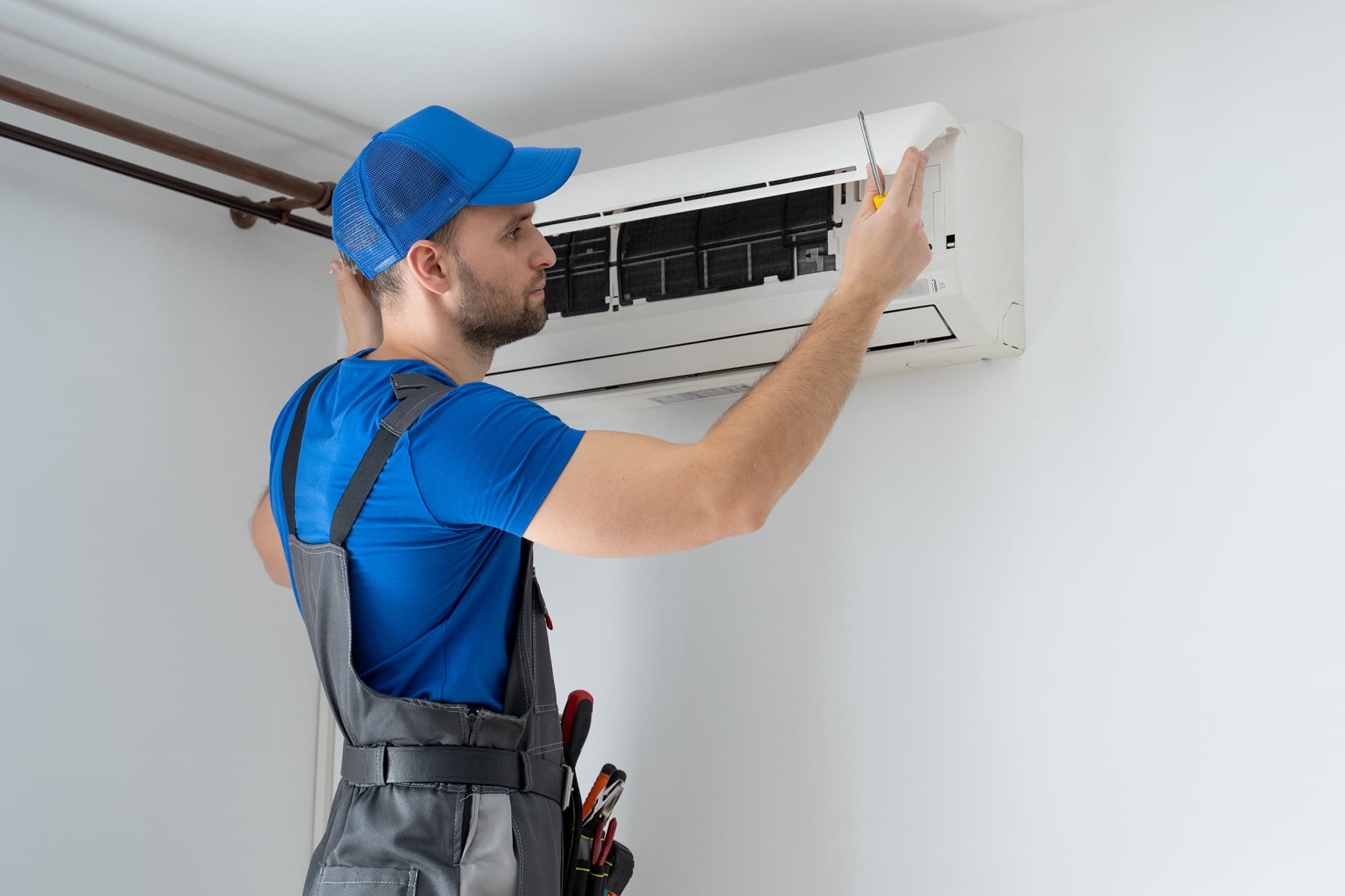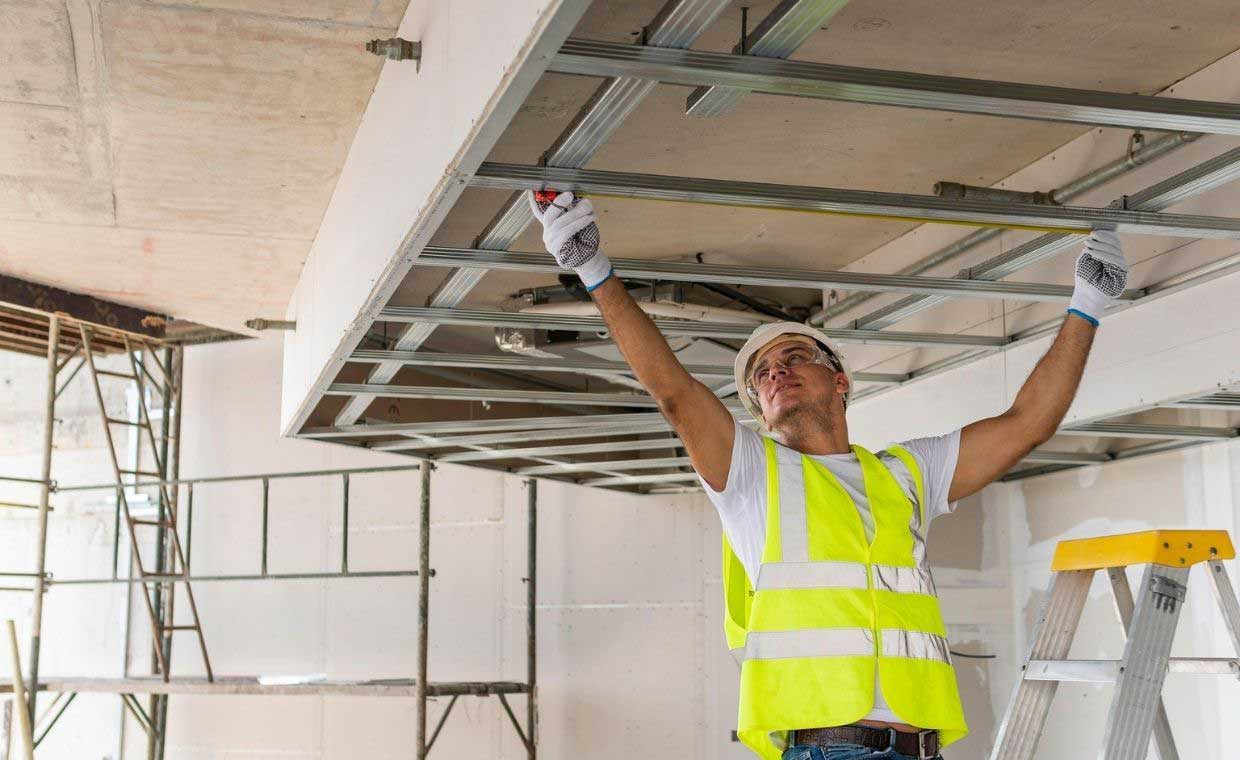
Table of Contents
Quick Summary
- This guide explains the most common air conditioner problems homeowners face after periods of non-use.
- It covers issues such as AC not turning on, poor cooling, and frequent on-off cycling.
- The article discusses causes of unusual AC noises and frozen evaporator coils.
- It explains why indoor and outdoor units may leak water and how to respond safely.
- Readers learn about unpleasant AC smells and what they indicate about internal faults.
- Electrical concerns like circuit breaker tripping and swing motor failure are also addressed.
- The importance of regular maintenance and professional servicing is highlighted.
Summer has returned, and it’s time to turn on your air conditioners (AC) and let them work their magic. After a sabbatical, when you put your air conditioners back to work, there is a possibility that your AC refuses to work. The long period of dormancy can cause your AC to even break down. There are a few signs to look for in your air conditioner that can help you identify the issue with it.
Gharpedia discusses the ten most common air conditioning problems and potential solutions in this post.
Common Air Conditioner Problems
Here are some common air conditioner problems we experience in our day-to-day live.
1. AC Not Working Or AC not Turning On?

Check your thermostat batteries if your air conditioner stops operating or won’t switch on. Replace your batteries if they’re dead. Verify that the thermostat is set to an appropriate temperature and that the batteries are operational. If your AC isn’t working, but your thermostat is, examine the circuit breaker. Should the circuit breaker trip, your air conditioner won’t operate. Turn the circuit breaker off and back on to reset it. Contact an AC technician if none of the aforesaid fixes resolve the issue.
2. AC Not Cooling Well

The cooling capabilities of your AC will take a beating with an improper supply of coolant to the unit caused due to no refrigerant or low-pressure level of refrigerant. In either case, there is a need to refill the refrigerant. Other reasons for an underperforming AC could be leakage in the gas passing from outdoor AC to the indoor AC unit, or due to choking up of copper pipes or due to a failed compressor. Using the AC in such condition can cause load on the compressor. We suggest stopping the use of AC unit and calling an AC technician for such problems.
3. AC cuts OFF and ON more Frequently!

The thermostat determines when to turn an air conditioner on or off. The compressor turns on and off to change the temperature until it reaches the target. When the thermostat malfunctions, the air conditioner turns on and off by itself. Hence, it is wise to cease testing the thermostat and test the compressor at a temperature of 25 degrees. If the AC problem persists, the thermostat needs a replacement.
Make sure that the AC unit is not oversized for the room. If so, the air conditioning unit will shut off due to the rapid cooling of the room. Once more, the air conditioner will activate when the temperature in the room rises.
Unclean filters too can make an AC shut off and on as they obstruct airflow. The interrupted airflow manipulates the thermostat reading, resulting in a frequent cutting OFF and ON of AC! Try cleaning the AC filters with water or soapy water.
4. AC Making Noises!

If you hear unusual, loud noises from your unit, it indicates an underlying AC problem. People frequently make the mistake of ignoring them, which then exacerbates the problem. As a result, it is preferable to identify the root cause of the problem as soon as possible.
You can hear a variety of sounds, each with its own story to tell. For example, a grinding sound indicates a compressor or motor failure. If there is an obstruction in the AC fan or a problem with the capacitor, clicking noises will occur. A bubbling noise indicates a refrigerant leak or excessive moisture in your AC.
The indoor AC unit consists of a fan that blows down cool air. If the installation of the AC unit is inappropriate, it may lead to AC making noises. To avoid this, ensure that the installation is in plumb level. Sometimes, dirt or debris accumulates on the fan, causing vibrations in the fan. Call an AC technician to clean the fan and replace it at a proper level.
The outdoor AC unit comprises a compressor and a fan. Wear and tear in any of these can result in unpleasing noise. We recommend stopping the use of AC in such cases so that it avoids the damage to the units. Call a technician to solve this AC problem!
5. Air Conditioner Frozen Coils

It is a typical problem with residential air conditioners that happens when your unit does not receive enough air to function properly owing to dirt buildup. The dirt deposited on the coil limits airflow, preventing warm air from reaching the refrigerant. In this instance, the refrigerant becomes too cold, and the moisture on the coils freezes. Over time, the coil gets covered in ice, preventing the refrigerant from collecting heat. This AC problem prevents your home’s air conditioning from running smoothly.
The formation of ice in AC coils can also be due to a low level of refrigerant. If the level of refrigerant is less than required, the temperature drops, causing the moisture to condense on the coil, resulting in the formation of ice on the coil.
The other reason could be a faulty evaporator fan of the indoor AC unit. If the fan does not blow air sufficiently to keep the temperature above the freezing unit, frost forms, resulting in frozen coils. Call an AC technician to rectify the cause behind the ice formation in the coil, failing which the AC will emit unpleasant odours!
6. AC Leaking Water Inside Home

There are several seasons why water seeps into a space. Frequently, algae or fungi grow, which backs up water in the pipe and into your house. Your AC may also leak if your condensation pump has failed, calling for a replacement.
Additionally, if the ice from the frozen coils melts, the water finds its way out of the indoor unit. If you notice water leaking from your indoor air conditioning unit, it’s time to schedule maintenance! Call a technician to rectify this AC issue.
7. AC Leaking Water in Outdoor Unit

An air conditioner may leak a little amount of water outside the room when it is operating normally. Usually, that water evaporates during a hot day. However, if you notice an unusual volume of water coming from your air conditioner unit outside your home, it’s possible that you set the temperature too low. An incorrectly fitted air conditioner may give rise to this AC issue.
On hot summer days, you may see a puddle of water outside the house beneath your air conditioner’s compressor. Possible causes for this include a malfunctioning AC unit, damaged condensate pans, and dry air filters.
Once you have identified the issue with your air conditioner, turn it off and disconnect the power source. Things could get complicated if you choose to leave this problem unattended. If you are having trouble with your air conditioner, you might need to call a specialist.
8. AC Smells Bad!

Your air conditioner may emit different kinds of odour due to different reasons. Let’s find out more.
a. AC smells like an old Socks or Mildew: Improper water drainage leads to water obstruction in the drainpipe. The stagnant water will begin to stink. When the condition worsens, fungus grows in the drainpipe. Cleaning of the drainpipe will solve the issue of AC smells bad. On the other hand, algae can grow when water builds up in the filter as well. Before reinstalling the filters, we advise taking them out of the indoor unit, giving it a thorough cleaning with detergent, and letting it air dry.

b. AC smells like Gunpowder: Shorting out of the fan or motor circuit results in burning or gunpowder-like smell. Immediately disconnect the power and call the AC technician to keep your AC safe!
c. AC smells like rotten eggs: Small rodents or birds enter the outdoor AC unit and die within the units. A bad odour from the rotten body circulates in the room when you turn on the AC. We recommend fixing a wire mesh to fan units in areas prone to such rodents.
Make sure to protect your air conditioner from reptiles like snakes.
How to Keep Snakes Out of Air Conditioners?
d. AC smell like emitting a gas – AC unit utilises Freon gas for its operation, which can be hazardous in case of leakage. Immediately call an AC technician if you smell gas inside your room and keep away from the AC space as a safety measure.
9. AC Circuit Breaker Keeps Tripping

Does your air conditioner trip a fuse every time it starts? This annoying, common AC problem requires you to put your other activities on hold until you restore the fuse. A power surge, capacitor failure, dirty filters or coils, low refrigerant levels, compressor failure, or circuit breaker problems could be the cause of your AC circuit breaker tripping often.
Another possible cause of this AC issue is a faulty air conditioning installation. Hiring the cheapest handyman to install your air conditioner is not a good idea. This issue arises when the circuit breaker or wiring is not rated for the HVAC unit’s output.
When you spot this problem, switch off your air conditioner and avoid attempting to reset the breaker, as this can result in a fire. You would need to consult a professional because a circuit breaker has electrical components that can be hazardous. Doing this on schedule will increase the average lifespan of your air conditioner.
10. AC Swing Not Working!

When the swing system in the air conditioner fails to function properly, there are two possible causes: the swing motor is faulty, or the PCB is not circulating electricity to the swing motor. A faulty circuit can be an expensive repair that depends on the AC model!
Conclusion
Air conditioning systems are complicated pieces of equipment that require frequent attention and maintenance to perform effectively. Neglecting routine maintenance can cause a variety of air conditioner problems, including reduced cooling performance, increased energy consumption, and even system failure.
Regular AC unit maintenance can help keep it functioning well and avoid any problems. With the information provided above, you will be well-prepared to address the most common AC problems. To avoid these AC issues, have your air conditioning system professionally checked at least once a year.
Are you wondering if your air conditioner requires repairing? To know the warning signs, read the below post:
Recognizing the Warning Signs: When Your Air Conditioner Needs Repair
Image Courtesy : Image 6, Image 7, Image 8, Image 10
FAQs – AC Problems
01. Why is my air conditioner not cooling properly?
This may be caused by low refrigerant levels, dirty filters, blocked copper pipes, or a faulty compressor. A technician should inspect the unit.
02. What causes an AC to turn on and off frequently?
A malfunctioning thermostat, dirty filters, or an oversized unit can cause short cycling.
03. Why is my air conditioner leaking water indoors?
Clogged drain pipes, frozen coils, or a failed condensation pump commonly cause indoor water leakage.
04. What should I do if my AC smells bad?
Clean the filters and drain pipe first. If the smell persists or resembles burning or gas, switch off the unit and call a technician.
05. How often should an air conditioner be serviced?
It is recommended to service an air conditioner at least once a year to maintain performance and prevent breakdowns.
Author & Expert Review
Written By:  Gaurav Mishra | Civil Engineer & Content Writer
Gaurav Mishra | Civil Engineer & Content Writer
| Credentials: B.E. (Mahavir Swami College, Surat), Registered with Bhagwan Mahavir University (BMU). Experience: Civil Engineer with 5+ years of content writing experience, currently writing impactful articles for Gharpedia, part of SDCPL. Expertise: Specializes in writing well-researched content on residential construction, construction materials, design planning, on-site practices, and safety, blending technical accuracy with everyday clarity. Find him on: LinkedIn |
Verified By Expert:  Farhan Shaikh – Senior Manager – Architect, SDCPL | Associate Member – IIA
Farhan Shaikh – Senior Manager – Architect, SDCPL | Associate Member – IIA
This article has been reviewed for architectural and interior design accuracy by Farhan Shaikh, Senior Manager – Architect at Sthapati Designers & Consultants Pvt. Ltd. As the lead for all architectural and interior projects at SDCPL and an Associate Member of the Indian Institute of Architects (IIA), he brings hands-on experience in architectural planning, interior design, project coordination, and sustainable strategies. His review ensures the content reflects practical design considerations, industry best practices, and real-world applicability across both architecture and interior spaces.
Find him on : Linkedin






























